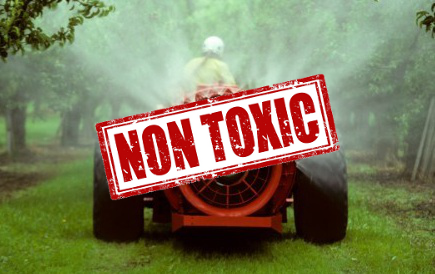Experts Slam German Report Deeming Monsanto’s RoundUp, Glyphosate ‘Safe’

 In December 2013, the German authorities completed a Renewal Assessment Report (RAR) for the re-approval of glyphosate in the European Union. According to the German authorities, there were no risks to health, and it was even suggested that the acceptable daily thresholds for long term exposure (ADI) to which consumers could be exposed might be raised. Now, Testbiotech (The Institute for Independent Impact Assessment in Biotechnology) has published a comprehensive report on the latest determination regarding the risk of the herbicide chemical glyphosate and doesn’t agree with German authorities at all. The German report is being called ‘inconclusive’ and untenable.
In December 2013, the German authorities completed a Renewal Assessment Report (RAR) for the re-approval of glyphosate in the European Union. According to the German authorities, there were no risks to health, and it was even suggested that the acceptable daily thresholds for long term exposure (ADI) to which consumers could be exposed might be raised. Now, Testbiotech (The Institute for Independent Impact Assessment in Biotechnology) has published a comprehensive report on the latest determination regarding the risk of the herbicide chemical glyphosate and doesn’t agree with German authorities at all. The German report is being called ‘inconclusive’ and untenable.
Glyphosate, if you didn’t already know, is the main ingredient in Monsanto’s best-selling herbicide, RoundUp, though it is also in other chemical companies’ products. According to Friends of the Earth Europe, around 650,000 tonnes of glyphosate products were used in 2011, and since then sales have mounted to an estimated $6.5 billion, far exceeding the value of any other herbicide on the market. Numbers for 2014 have not yet been calculated, but the product is still used heavily, and shows no signs of being de-regulated or slowed in the U.S. or in several countries in Europe.
The main outcomes in the German report were outlined as such:
- “Available data do not show that glyphosate is carcinogenic or mutagenic or that glyphosate is toxic to fertility, reproduction or embryonal/foetal development in laboratory animals.
- Evaluation of literature however showed that the toxicity of some herbicides containing glyphosate can be higher than just the active ingredient because of co-formulants (added ingredients) such as e.g. tallowamines used as surfactants.
- A research project initiated by BfR shows that the active ingredient glyphosate and the co-formulants (added ingredients) do not have a negative effect on the microflora in the rumen of ruminant animals.”
German authorities ridiculously state that glyphosate posed no risk to humans, even though there are multiple studies proving the very opposite. The authorities even suggested that the acceptable daily threshold for long term exposure (ADI) should be raised. Yes, let’s raise the allowable limits for a chemical concoction that has been shown to cause birth defects, various cancers, and DNA damage, among other things. Where do these people get their ‘authority’ anyhow? They sound like sycophants to the biotech industry to me.
Testbiotech found that the analysis the German’s published completely ignores new scientific evidence and cites evidence from studies published in 2013 and 2014, and argues that the health risks associated with glyphosate require more meticulous inquiry.
Andreas Bauer Panskus, author of the Testbiotech report, states:
“Our analysis shows, firstly, that the report from the German authorities is inconclusive. Recent publications show that so far the risks of glyphosate have been grossly underestimated. This is a huge problem, because residues from spraying are, for example, widely found in all sorts of food and therefore lead to continuous consumer exposure.”
Several studies have also shown a significant effect on the hormonal system in mammals. Yet another recent study explained for the first time that the learning behavior of bees can be affected by glyphosate as well.
All these risks were classified as irrelevant by the German authorities. How can they be so selective when the results to human and animal life, let alone our environment, could be so heavy?
The German glyphosate risk assessment report is currently being considered by the EU Member States and the European Food Safety Authority (EFSA) with a final decision on a new authorization expected in 2015.
In 2013, an analysis commissioned by Testbiotech showed that transgenic soybeans from Argentina contained glyphosate residue levels five times higher than the valid limit in the EU. But again, the German report calls for increased allowable levels we are exposed to. It gets more insane every day.

Deutschland Ihr sollt euch schaemen.. IG Farben AKA Monsanto…. known for its zyklone B.. havent you learned anything at all from history?